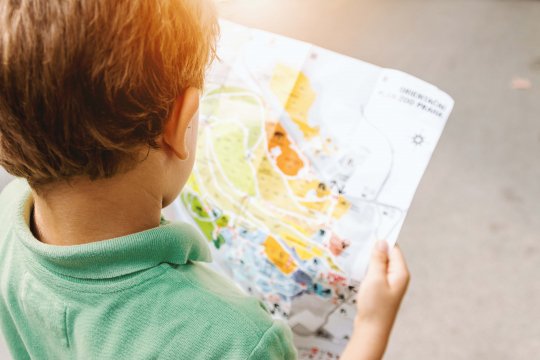You may not be going on holiday, but who said you can’t plan one. How to help survive a torrid time?

They stand on shelves and chests of drawers, they hang on the walls. What are they? Frames with photos. From family celebrations, important events, from short and longer trips. And in the pictures: us, our loved ones or interesting places. Look at them and reminisce. Go back to these moments. You could have a photo night. Talk about what you have fond memories of, about what you remember from a given moment or event. Where was it? Do these memories involve specific people, objects or emotions? Note that most often we don’t remember all the details. We might remember a specific thing, e.g. the colour of our clothes, and most often we remember what this moment made us feel like.
Souvenirs
Ask the children to look for souvenirs from your trips. It might be something that you brought purposefully, but also an aeroplane or train ticket or a ticket to a national park or a museum. Ask the children what memory this object evokes. What’s the story behind it. Use this prop to talk about which memories are most valuable to your children and why. Listen carefully to their answers. It can also be a good starting point to talk about what is important to them and what they need in life. If you have photos of the mentioned moments, find them and look at them again!
Parents walking down memory lane...
Children love listening to their parents’ childhood stories. Of course, it’s best if they involve some funny events that you can laugh at together. Pick one story and tell it to your child. Talk to your children about your travels, the small ones and the big ones. Which journey do you remember as the most precious? What did that journey teach you? What was the most important aspect of this journey for you? In your story, describe what you value from this travel experience. Maybe you have photos from these trips, e.g. from your childhood or youth, which you want to show to your child? Or maybe there is a place where you would like to go again and show it to your children? Plan a trip to this place.
Let’s hit the road!
Even if we can’t go anywhere right now, we can travel using our imagination. Sit down together, grab a map and start looking for destinations for your future trips. Which places would you like to visit, what would you like to see and get to know? How about embarking on a journey in your mind? Close your eyes. What is this place? How did you get there? What’s the weather like there? What colours do you see? What smells do you smell? Who will you meet there? You can also prepare various props that will accompany you on this journey. A rocket? A piece of cake. A couple of boxes, duct tape, a marker et voilà!
All source materials are prepared by the team of Kulczyk Foundation’s Education Department in cooperation with teachers and experts – pedagogists, psychologists and cultural experts – and verified by an experienced family therapist Kamila Becker. Kinga Kuszak, PhD, Professor of Adam Mickiewicz University, Faculty of Educational Studies, provides content-related supervision over Kulczyk Foundation’s educational materials. All materials are covered by the content patronage of the Faculty of Educational Studies of Adam Mickiewicz University.
The article was published on 17.04.2020 on the website of Instytut Dobrego Życia (Good Life Institute)
Authors: Marta Tomaszewska (Kulczyk Foundation) and Anna Woźniak (Instytut Dobrego Życia)

